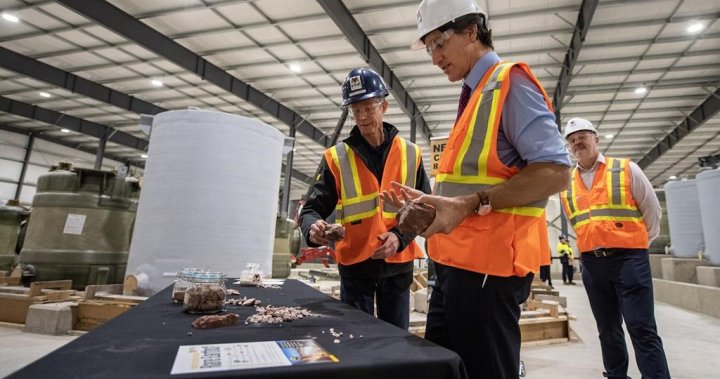
Northern miners say more federal support needed to deliver critical minerals plan
Global News
The federal government released a strategy last month that aims to increase the responsibly sourced supply of 31 critical minerals.
Mining companies with projects in the North say more federal support is needed following the release of Canada’s new critical minerals strategy, while some environmental advocates are wary of the potential impacts.
Several projects in the North focus on critical minerals – so-called because they are considered critical to Canada’s economy and strategic industries like clean technology – including zinc, copper, cobalt, bismuth, tungsten, uranium, and nickel. Canada’s first rare earth elements mine, Nechalacho mine owned by Vital Metals subsidiary Cheetah Resources, opened in the Northwest Territories in 2021.
Robin Goad, president and chief executive officer of Fortune Minerals Ltd., said his company has been speaking with the federal government about critical minerals for more than five years, but has yet to see substantive action. Fortune owns the proposed Nico mine, a cobalt, gold, bismuth and copper project in the N.W.T.
“It’s time we stop talking about this and actually (start) doing something,” Goad said.
“We got this tremendous amount of money announced in the federal budget, but it’s all smoke and mirrors right now.”
The federal government released a strategy last month that aims to increase the responsibly sourced supply of 31 critical minerals. It’s backed by $3.8 billion in the 2022 budget, including $40 million to support northern regulatory processes and a 30 per cent exploration tax credit for targeted minerals.
Goad believes support should be focused on advanced projects that can quickly transition into production like the Nico mine, as well as processing. He said once the company secures financing, it could begin production within three years.
Regulatory environments are “cumbersome and expensive,” Goad added, and the N.W.T., whose economy relies on mining, is a high-cost jurisdiction with limited infrastructure.
